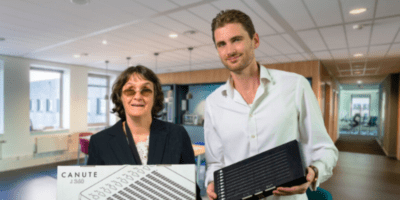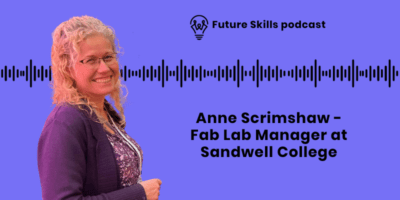Emma Harrison is the managing director of Whyy? Change, a leading South Yorkshire-based apprenticeship training provider. Emma joined the organisation in 2019 in a governance officer role, before being promoted to governance director and eventually managing director in 2022. Emma studied a level 4 quality practitioner apprenticeship to support the growth and expansion of the business, whilst maintaining governance and high-quality apprenticeship training for the benefit of their customers and in 2022 became the first person to achieve a distinction on the quality practitioner apprenticeship end-point assessment.
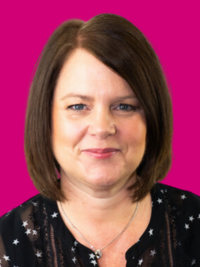
“In the world of learning and development we work extensively with skills matrices and occupational maps. These are strategic tools used to identify and visualise the skills required for specific jobs.”
A passion for people and processes
To briefly summarise my career to date, after completing my A-Levels in 1992, I joined John Lewis Partnership for a management training position, where I worked for eight years before taking maternity leave. I then moved to NatWest Group within Lombard Direct Loans, working part time during evenings and weekends. I advanced to a team leader position and held several management roles. After being made redundant in 2009, I worked for a government outsourcing company before joining Close Brothers Motor Finance. I held various control and governance roles in the gap sales department for nine years.
I joined Whyy? Change as a governance officer in June 2019, before being promoted to governance director in April 2021 and then to managing director in September 2022. I was drawn to this role by my passion for working with people and processes and my interest in understanding how things work.
You can read about my journey in more detail in the last piece I wrote for Womanthology. Shortly after that was published, I was delighted to become the first person ever to achieve a distinction for the end-point assessment for my quality practitioner apprenticeship — happy times!
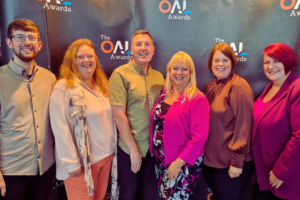
The other good news is that Whyy? Change continues to grow (and fast!). We’re now a team of nine with additional guest trainers coming in to support the very best outcomes for our learners. Since my last article, we’ve moved into new premises in the New York Stadium. (That’s in Rotherham rather than in NYC, but equally as glamorous!)
Skills mapping
In the world of learning and development, we work extensively with skills matrices and occupational maps. These are strategic tools used to identify and visualise the skills required for specific jobs. A skills matrix is a grid displaying the skills and competence level of each team member, while an occupational map outlines the necessary knowledge, skills, and behaviours for a particular occupation.
These are powerful tools for employers to help with recruitment, training, and performance management by allowing organisations to identify skill gaps within a team and highlight areas for training and development. This can lead to more effective hiring and training strategies, ultimately improving team performance and productivity.
For employees, skills matrices and occupational maps provide a clear understanding of the skills needed for their role and for career progression by providing a guide for the development of personal development plans, which helps employees to focus on improving key skills and competencies. This can lead to increased job satisfaction, motivation, and career advancement. Overall, these tools can foster a more skilled and engaged workforce.
I think these tools have huge potential to be more widely utilised by employees, in particular, to guide them in their career planning. I’d strongly encourage employees to familiarise themselves with these tools to help them focus on the specific knowledge, skills and behaviours within a role or within, an apprenticeship, for example.
I’d encourage employees to be a bit nosy, be curious (which is actually one of our guiding principles here at Whyy? Change too) and to go digging because there’s so much information available but it’s not always obvious where to find it. It’s about having that curious mind to think: “Right, I’m going to explore this and see what my options are.”
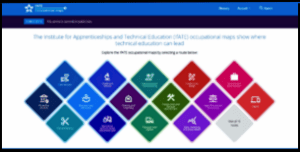
I did my own research when I was deciding on whether to study for my quality practitioner apprenticeship. I knew I wanted to go into ‘quality’ and it really helped to be able to map out what I needed to do to get there and think about the knowledge, skills and behaviours in isolation. Take ‘professionalism’. What does that actually mean? How can I bring that to life? Looking at the duties detailed on an occupational map gives you more of an insight into what’s actually expected to demonstrate competence within that area.
Identifying future skills needs
The skills landscape is dynamic and is constantly evolving, as you might imagine. From my perspective, employers are asking us more and more frequently for continuous improvement skills. We deliver Lean and Six Sigma and I think businesses are still looking for efficiency and time savings, which all lead to financial savings. For want of a better term, it’s about ‘working smarter’.
We offer leadership training, so we offer accredited training through the CMI (Chartered Management Institute) for Levels 3, 5 and 7. Leadership is still a massive hot potato. People literally can have some massive gaps here. A few weeks ago, I spoke with someone who had been in leadership for 30 years and had no formal leadership qualifications.
There’s a real opportunity here to assess skills gaps by finding out where people are at and developing their expertise to give them recognised skills and recognised qualifications to develop their own credibility and reputation. But it’s also the credibility and reputation of the business. There are even greater benefits for businesses that have whole teams trained and qualified in a certain area.

The CIPD (Chartered Institute of Personnel and Development), and the CIM (Chartered Institute of Marketing) are educating HR and marketing professionals on AI, with many of their webinars and events exploring how businesses can improve their processes, efficiency and how to get the best out of their tools. Organisations are increasingly looking for data specialists to make sense of the data that is inputted using AI and the outputs when it comes to presenting the information.
The businesses I’m speaking with are looking for training organisations like Whyy? Change to help design their development plans and progression, and occupational maps will definitely help to design their training routes for employees.
Coming up next
We have a new Level 3 Multi-Channel Marketing Apprenticeship, which replaces the Level 3 Digital Marketer Apprenticeship. We’re one of the first providers in South Yorkshire to offer this brand-new apprenticeship standard, which we’re incredibly excited about.
Next year we’ve got CMI Level 3, 5 and 7 Leadership apprenticeship cohorts starting. My lovely colleague, Anne Wilson, is going to be delivering Level 7 from the middle of 2024, so I’m hoping to join that cohort myself at some point.
We also have CIPD Level 3 and 5 apprenticeship cohorts starting and a Quality Practitioner Level 4 cohort.
Through our connections with Bureau Veritas (Whyy? Change is a member of the Bureau Veritas Certification Consultant Programme, a network of certification consultants operating nationwide, who work with clients to develop and implement effective management systems) we also deliver ISO, internal auditing and Lean 6 Sigma courses, so we will continue to offer those.
There is a lot happening for us but we wouldn’t have it any other way!


